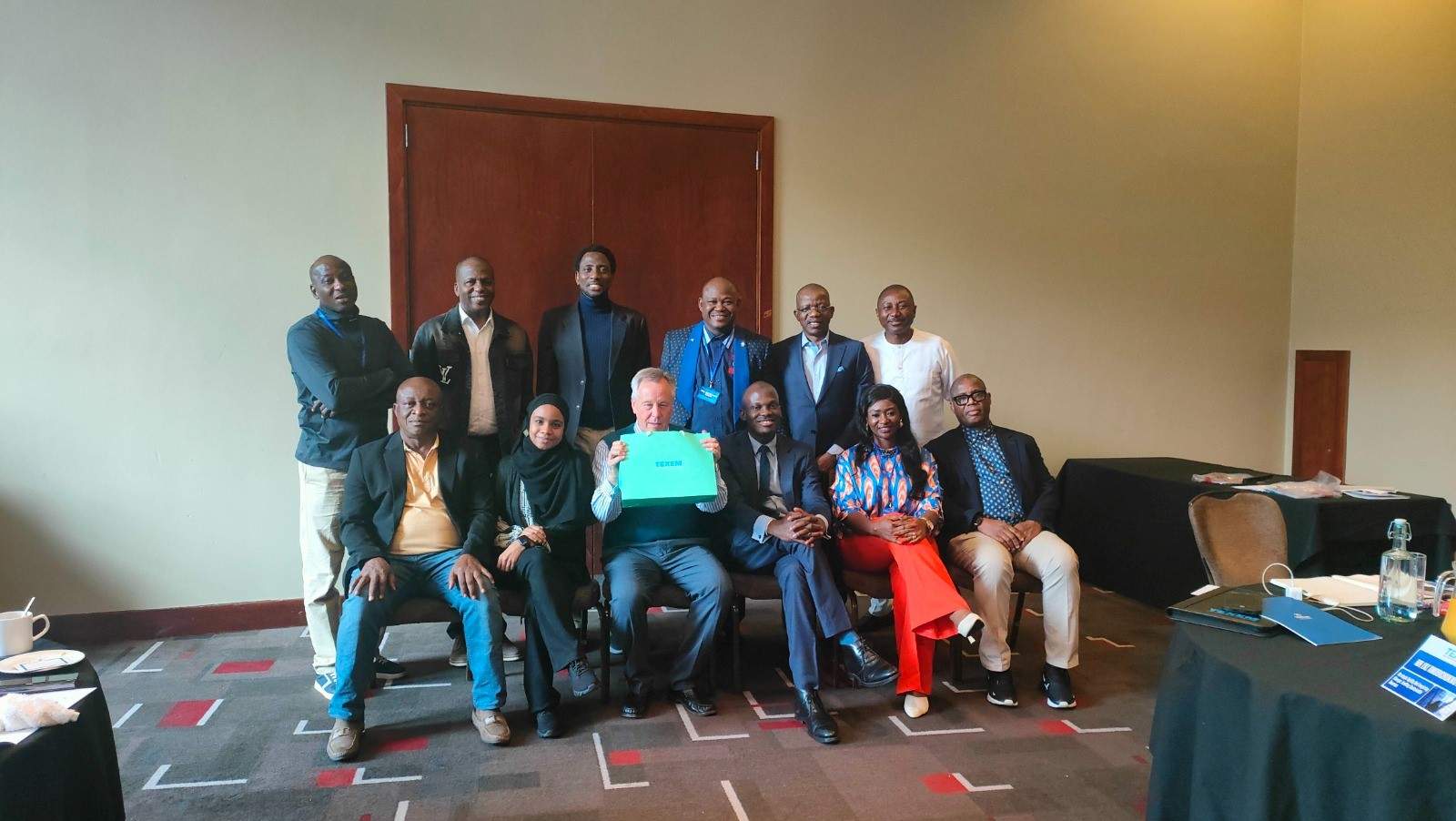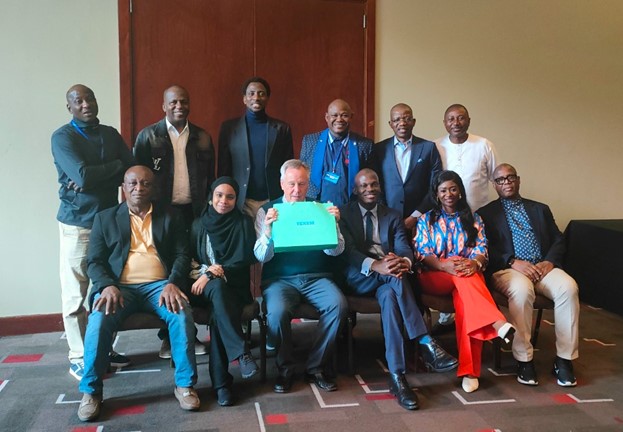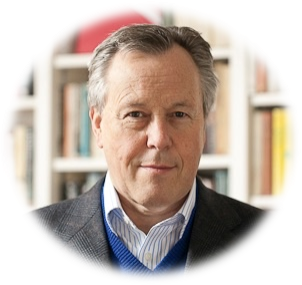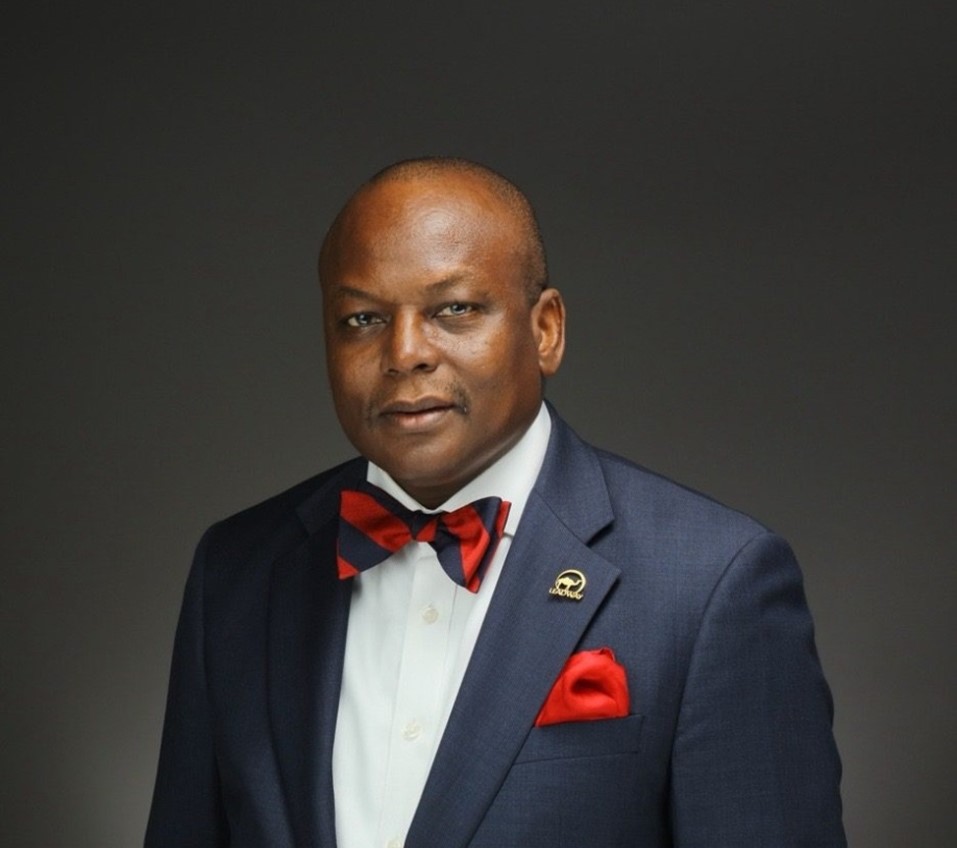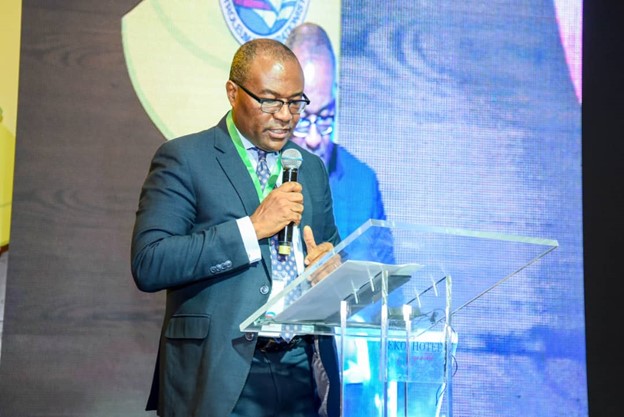At TEXEM, UK, we are proud to celebrate our distinguished alumni—trailblazers whose leadership exemplifies excellence, resilience, and transformative impact. These remarkable women have shattered barriers, challenged norms, and redefined success across industries. Their achievements serve as a beacon of inspiration, proving that women can and do make a significant difference in society, despite the professional and personal challenges they encounter.
Trailblazers of Good Governance and Strategic Leadership
Dupe Olusola: Architect of Transformational Growth
As a seasoned leader with over 25 years of experience, Dupe Olusola has set new records in finance, hospitality, and corporate strategy. Under her leadership, Transcorp Hotels achieved historic milestones, becoming Nigeria’s first N1trillion enterprise under a female CEO. Her ability to navigate complex business landscapes with strategic foresight demonstrates the power of transformational leadership in driving sustainable growth.
 Chinwe Iloghalu: Redefining Banking Excellence
Chinwe Iloghalu: Redefining Banking Excellence
With a career spanning nearly three decades, Chinwe Iloghalu, Acting MD at Nova Bank, is a powerhouse in the banking sector. Her strategic acumen and innovative approach to financial services continue to set new benchmarks for industry-wide growth. By fostering innovation and embracing change, she exemplifies the evolution of executive leadership, proving that women can lead with authority while driving meaningful transformation.
 Adenike Brown Awosan: Champion of Brand Excellence
Adenike Brown Awosan: Champion of Brand Excellence
A force in brand management and marketing, Adenike Brown Awosan has pioneered innovative strategies that have led to sustainable corporate growth. Her forward-thinking approach has not only propelled brands to new heights but also showcased the value of diverse perspectives in leadership where creativity meets profitability.
Driving Good Governance and Nation Building In governance, women are rewriting the rules and reshaping policies to foster inclusive and sustainable development.
 Ann Iyonu: A Voice for Democracy and Leadership
Ann Iyonu: A Voice for Democracy and Leadership
As Executive Director of the Goodluck Jonathan Foundation, Ann Iyonu is a formidable advocate for governance, democracy, and leadership development across Africa. Through strategic dialogues and policy initiatives, she influences critical discussions that shape the future of leadership on the continent.
 Hajara Bolanle Oniyangi: The Policy Reformer
Hajara Bolanle Oniyangi: The Policy Reformer
A visionary in the public sector, Hajara Bolanle Oniyangi is committed to effective governance and sustainable policy reform. Her dedication to driving meaningful change continues to inspire future generations of leaders to prioritize nation-building and societal impact.
Catalysts of Innovation and Sustainable Development
Women leaders are driving impactful innovations that redefine industries and contribute to long-term sustainable development.
 Tonye Ukpong: Leading Healthcare Transformation
Tonye Ukpong: Leading Healthcare Transformation
As MD/CEO of Total Health Trust, Tonye Ukpong has leveraged over two decades of leadership experience in banking and insurance to revolutionize the healthcare industry. Her commitment to innovation and strategic growth highlights how diverse expertise can drive sector-wide transformation.
Exemplifying Strategic Governance in Public Service
Public sector leadership requires a balance of strategic governance and service-driven impact. These TEXEM alumnae continue to set standards in public administration and governance.
Sunkanmi Oyegbola & Busola Abidakun: Steering Public Service Excellence
As Permanent Secretaries in Lagos State, Sunkanmi Oyegbola and Busola Abidakun are shaping policies that enhance service delivery, youth empowerment, and inclusive governance. Their work underscores the value of ethical leadership and strategic governance in advancing societal progress.
Daba Bolaji: A Pillar of Effective Governance

As permanent Secretary, Deputy Governor’s office in Lagos State, Daba Bolaji plays a pivotal role in ensuring seamless administration and governance, reinforcing the importance of women’s leadership in policy execution.
Senator (Dr) Akon Eyakenyi: Legislative Excellence in Governance

As Deputy Governor of Akwa Ibom State, Senator Akon Eyakenyi has made significant contributions to legislative reforms, education, and public administration. Her advocacy for national policies, such as the establishment of the Nigerian Coast Guard, showcases her dedication to governance and security.
Senator Oluranti Idiat Adebule: Shaping Education and Politics

A distinguished educationist and legislator, Senator Oluranti Idiat Adebule has played a key role in shaping educational policies and political frameworks in Nigeria. As one of only three female lawmakers in the 10th Assembly, her leadership serves as a testament to the growing influence of women in governance.
Redefining Business and Financial Leadership
The business world is witnessing a paradigm shift as women take on top leadership roles, driving profitability, operational efficiency, and corporate innovation.
Ebele Nwachukwu: A Game-Changer in Insurance

As MD/CEO of Royal Exchange General Insurance, Ebele Nwachukwu has led unprecedented growth in the insurance sector. Her ability to balance risk, strategy, and innovation positions her as a leader who is reshaping the financial landscape.
Olayinka Ajayi: Pioneering Pension Administration

As Executive Director of Zenith Pensions, Olayinka Ajayi brings a wealth of experience in actuarial science and finance. Her contributions to pension administration reflect the growing role of women in financial governance.
Pamela Shodipo: Revolutionizing Retail Banking

As an Executive Director at Fidelity Bank, Pamela Shodipo has redefined customer engagement and financial inclusion strategies, ensuring that banking services remain accessible and innovative
Mrs. Bolanle Onogorowa is a seasoned executive with extensive experience in corporate leadership, infrastructure development, and strategic management. As the Managing Director of ENL Consortium, she has been instrumental in driving operational excellence, fostering sustainable business practices, and leading large-scale projects that contribute to Nigeria’s economic growth. A trailblazer in governance and corporate strategy, she is committed to innovation, stakeholder engagement, and industry transformation. Her leadership continues to set benchmarks for excellence, inspiring the next generation of business leaders.
Driving Media, Marketing, and Thought Leadership
Women are also reshaping the media and marketing landscape, leveraging their influence to drive thought leadership and impactful storytelling.
Ijeoma Nwogwugwu: A Titan in Journalism

With a legacy of journalistic excellence, Ijeoma Nwogwugwu, former CEO of Arise News, has set new benchmarks for integrity and professionalism in the media. Her leadership in shaping public discourse underscores the power of media in driving governance and transparency.
Ijeoma Ude: The Force Behind Business Media

As Executive Director at BusinessDay, Ijeoma Ude has demonstrated unparalleled expertise in sales, marketing, and strategic media leadership, reinforcing the role of women in shaping business intelligence.
Zainab Nda-Isaiah
Mrs. Zainab Nda-Isaiah is the Chairman of Leadership Newspaper Nigeria Ltd, a prominent figure in Nigeria’s media and corporate sectors. She provides strategic direction to the newspaper, ensuring its commitment to press freedom, responsible journalism, and investigative reporting. A strong advocate for good governance and nation-building, she plays a vital role in shaping public discourse on policy, governance, and business.
Beyond media, Mrs. Nda-Isaiah is a seasoned corporate leader dedicated to sustainable development, ethical business practices, and leadership development. She actively engages in philanthropy, corporate social responsibility (CSR), and economic empowerment initiatives. Her leadership continues to strengthen Leadership Newspaper’s role as an influential voice in Nigeria, promoting credibility, democracy, and national progress in an evolving media landscape.
Dr (h.c) Hadiza I. Bala, Group Executive Director, Corporate Services Directorate, Media Trust Group and Group Executive Director of Corporate Services at Media Trust Group. With a track record of excellence, she drives innovation, strategic governance, and operational efficiency in media management. A champion of good governance and nation-building, she continues to shape the media industry with visionary leadership, fostering impactful journalism and corporate sustainability.
The Power of Diverse Leadership in Shaping the Future
The leadership playbook is evolving, and these exceptional women are at the helm of that transformation. Research from Harvard Business Review reveals that when women join leadership teams, they bring fresh perspectives, redefine collaboration, and spark innovation. Emotional intelligence, inclusivity, and strategic foresight—once considered secondary traits—are now seen as indispensable in modern leadership.
These TEXEM alumni exemplify the highest standards of governance, strategy, and nation-building, proving that leadership is not about gender but about vision, competence, and impact. By celebrating their achievements, TEXEM hopes to inspire the next generation of women leaders to rise above challenges, break barriers, and shape a more equitable and prosperous future.
A Call to Action: The Journey Continues
The success of these women is a testament to what is possible with resilience, strategic thinking, and bold leadership. As TEXEM continues to nurture and empower leaders, we remain committed to fostering an ecosystem where women’s contributions are recognized, valued, and celebrated.
To every woman striving to make a difference—whether in governance, business, healthcare, or media—know that the path has been paved, and the future is yours to shape. The time for transformational leadership is now, and the world is ready for more trailblazers like you.
















